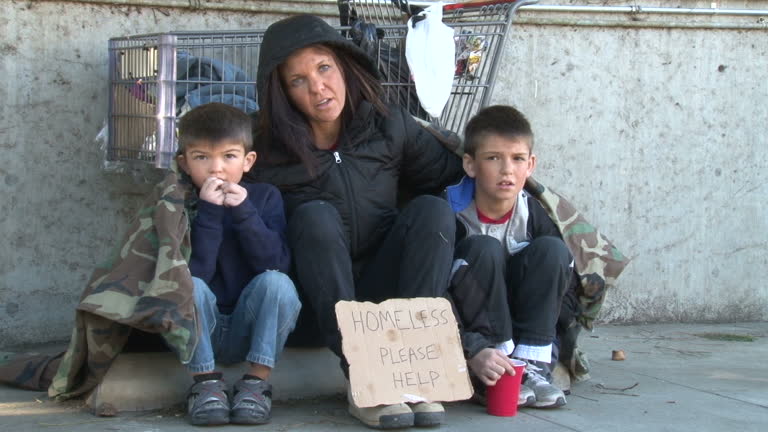The Struggles of families legally in the U.S. Amid One of the Largest Immigration Crises in American History

The United States is facing one of the largest immigration crises in its history, and while the impact on migrants often dominates headlines, a significant, less-discussed group is suffering—American citizens living in border communities. These families, many of whom have lived in these areas for generations, are enduring harsh living conditions as their communities grapple with the consequences of a strained immigration system.
This article sheds light on how the current immigration crisis is affecting U.S. citizen families, especially those living near the border. From economic hardship to compromised safety and access to essential services, these communities are on the front lines, often feeling forgotten in the broader national conversation.
Understanding the Immigration Crisis
The United States has long been a destination for people seeking refuge from violence, poverty, and political instability in their home countries. However, in recent years, the scale of migration across the southern border has reached unprecedented levels. According to U.S. Customs and Border Protection, encounters with migrants at the border have risen sharply, putting immense pressure on border infrastructure, local governments, and communities.
While efforts to manage and reform the immigration system are ongoing, the crisis shows no signs of easing. This leaves many U.S. citizen families living in affected areas to deal with the immediate fallout.
The Impact on Border Communities and U.S. Citizen Families
1. Economic Hardship and Strained Resources
One of the most direct consequences of the immigration crisis is the overwhelming strain on local resources. Communities along the U.S.-Mexico border are experiencing an influx of migrants, which has led to overcrowded shelters, hospitals, and schools. In many cases, local governments simply do not have the funding or infrastructure to support this sudden increase in population.
For U.S. citizen families, this means fewer resources for their own needs. Public services are stretched thin, and access to healthcare, housing, and educational opportunities has become increasingly difficult.
- The Reality: Families living in border towns often face higher taxes to fund emergency services, and in some cases, hospitals have been forced to close due to the overwhelming demand for care. This leaves citizens with fewer options for medical treatment, sometimes having to drive hours for basic healthcare services.
2. Safety Concerns
The influx of migrants has also contributed to rising safety concerns for many families in these areas. While the vast majority of migrants are fleeing hardship and seeking a better life, the sheer number of people crossing the border—often through remote, uncontrolled areas—has created opportunities for criminal activity, including human trafficking and drug smuggling.
Border security is a constant challenge for federal agencies, and many U.S. citizens living near the border feel increasingly vulnerable in their own communities. Reports of property damage, theft, and even violent encounters are common.
- The Reality: Ranchers and homeowners near the border often find their property damaged as migrants pass through, sometimes leaving behind litter or cutting fences. While not all encounters are dangerous, the sense of insecurity has grown, leading some families to install costly security systems or even move away from their homes entirely.
3. Displacement and Housing Crises
In some border towns, the housing market is experiencing severe disruptions due to the crisis. With shelters and temporary housing overflowing, some migrants have turned to rental properties, driving up demand and prices in an already limited housing market. As a result, many U.S. citizens—especially low-income families—are finding it increasingly difficult to afford housing.
- The Reality: In areas like El Paso, Texas, and Nogales, Arizona, families have seen rent prices skyrocket, leaving them struggling to make ends meet. This housing crisis disproportionately affects those who are already living paycheck to paycheck, pushing some families into homelessness.
4. Social Tension and Mental Health Struggles
The immigration crisis has also led to heightened social tensions in border communities. Many U.S. citizen families feel neglected by both the state and federal governments, as they witness the influx of resources being directed toward managing the migration situation while their own needs go unmet.
This sense of abandonment, coupled with the stress of living in such uncertain conditions, has had a profound impact on mental health. Families are dealing with anxiety, depression, and feelings of isolation, as they struggle to navigate their lives amidst the chaos.
- The Reality: Children growing up in these conditions are particularly vulnerable to mental health issues, as they experience the constant stress of their families’ economic struggles and the instability in their communities.
The Forgotten Families of the Border Crisis
Perhaps the most tragic aspect of this crisis is that many U.S. citizen families feel forgotten. Media coverage often focuses on the political debates surrounding immigration policy or the humanitarian needs of migrants themselves, but the citizens living in border towns are rarely mentioned.
These families are facing a unique kind of hardship. They are not only struggling with the same economic and social challenges that affect other Americans but are also grappling with the direct impacts of an overburdened immigration system in their own backyard. Many feel that their voices are being drowned out in the national conversation.
A Call for Action
While there are no easy solutions to the immigration crisis, the needs of U.S. citizen families in border communities must not be overlooked. Their concerns are real, and their struggles are pressing. The federal government, along with state and local authorities, must work together to provide adequate resources, ensure safety, and support the economic stability of these communities.
Health-issues
At the Relief Alliance, we are dedicated to supporting U.S. citizen families living in these challenging conditions. Our mission is to provide assistance in the form of housing support, healthcare access, and mental health services to those who are directly affected by the immigration crisis.
If you want to make a difference in the lives of struggling American families, consider donating to the Relief Alliance or volunteering your time to help us provide much-needed relief to these forgotten communities. Together, we can ensure that no American family is left behind in this crisis.
Conclusion: Putting the Spotlight on U.S. Families
The immigration crisis has far-reaching impacts, and U.S. citizen families living in border communities are among the most affected. These families deserve attention, resources, and support as they navigate the challenges of living on the front lines of one of the biggest humanitarian crises in modern American history.
To learn more about how you can help, visit the Relief Alliance today.
